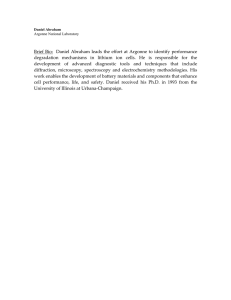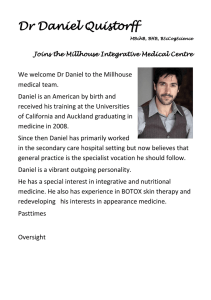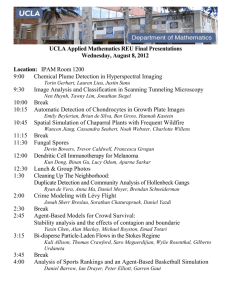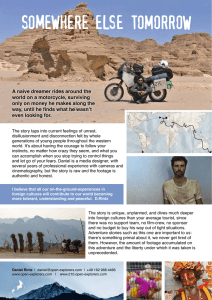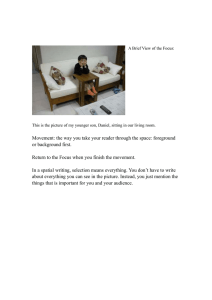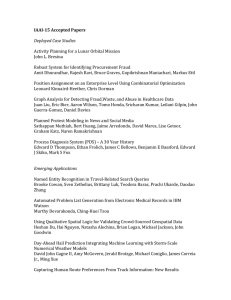Bandmann, Daniel
advertisement
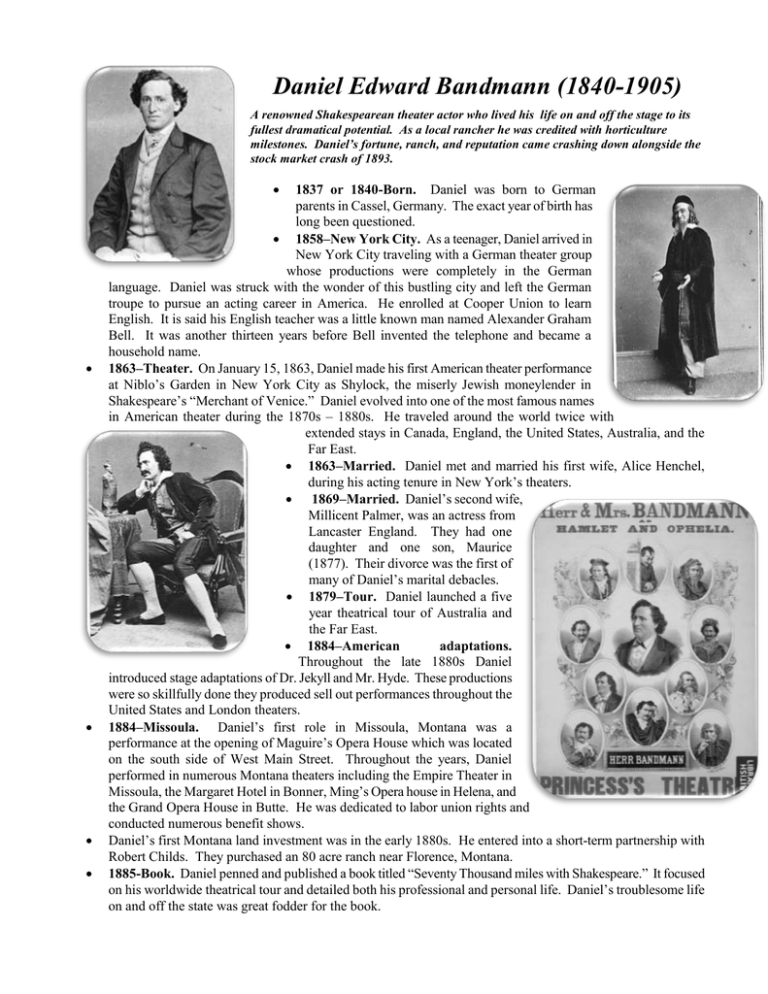
Daniel Edward Bandmann (1840-1905) A renowned Shakespearean theater actor who lived his life on and off the stage to its fullest dramatical potential. As a local rancher he was credited with horticulture milestones. Daniel’s fortune, ranch, and reputation came crashing down alongside the stock market crash of 1893. 1837 or 1840-Born. Daniel was born to German parents in Cassel, Germany. The exact year of birth has long been questioned. 1858–New York City. As a teenager, Daniel arrived in New York City traveling with a German theater group whose productions were completely in the German language. Daniel was struck with the wonder of this bustling city and left the German troupe to pursue an acting career in America. He enrolled at Cooper Union to learn English. It is said his English teacher was a little known man named Alexander Graham Bell. It was another thirteen years before Bell invented the telephone and became a household name. 1863–Theater. On January 15, 1863, Daniel made his first American theater performance at Niblo‟s Garden in New York City as Shylock, the miserly Jewish moneylender in Shakespeare‟s “Merchant of Venice.” Daniel evolved into one of the most famous names in American theater during the 1870s – 1880s. He traveled around the world twice with extended stays in Canada, England, the United States, Australia, and the Far East. 1863–Married. Daniel met and married his first wife, Alice Henchel, during his acting tenure in New York‟s theaters. 1869–Married. Daniel‟s second wife, Millicent Palmer, was an actress from Lancaster England. They had one daughter and one son, Maurice (1877). Their divorce was the first of many of Daniel‟s marital debacles. 1879–Tour. Daniel launched a five year theatrical tour of Australia and the Far East. 1884–American adaptations. Throughout the late 1880s Daniel introduced stage adaptations of Dr. Jekyll and Mr. Hyde. These productions were so skillfully done they produced sell out performances throughout the United States and London theaters. 1884–Missoula. Daniel‟s first role in Missoula, Montana was a performance at the opening of Maguire‟s Opera House which was located on the south side of West Main Street. Throughout the years, Daniel performed in numerous Montana theaters including the Empire Theater in Missoula, the Margaret Hotel in Bonner, Ming‟s Opera house in Helena, and the Grand Opera House in Butte. He was dedicated to labor union rights and conducted numerous benefit shows. Daniel‟s first Montana land investment was in the early 1880s. He entered into a short-term partnership with Robert Childs. They purchased an 80 acre ranch near Florence, Montana. 1885-Book. Daniel penned and published a book titled “Seventy Thousand miles with Shakespeare.” It focused on his worldwide theatrical tour and detailed both his professional and personal life. Daniel‟s troublesome life on and off the state was great fodder for the book. 1887-Bandmann Flats. Daniel purchased two ranches totaling 320 acres in Hellgate Canyon east of Missoula. The area has long been known as Bandmann Flats and is now the home of Canyon River Golf Course. At the time he purchased the ranch, Daniel knew nothing about livestock or ranching, however, he would later establish himself as an innovator in the horticultural field. He was a co-founder of the Montana Board of Horticulture. Daniel introduced the first McIntosh red apples to Montana. His orchards were said to be one of the finest apple orchards in the state. In 1902 his orchard yielded 2,500 boxes of apples. Daniel worked with Dr. Morton Elrod of Montana State University to stamp out pests common to apple orchards. Livestock. Daniel introduced exotic breeds of cattle, pigs, and poultry to Montana. He originated the first Holstein cattle and later sold 13 head of the livestock to Bitterroot “Copper King” Marcus Daly. Daniel imported the first Percheron horses from France. He incorporated pigs as a tribute to his fellow man of which he felt were all “greedy pigs” himself included. Daniel‟s pride was his exotic line of Royal chickens. 1889-Race. Daniel loved attention. In June 1889 a discussion with some of the locals soon turned into a wager of means. He bet he could walk from downtown to the top of Mount Sentinel and back within two hours. The newspaper reported the distance as roughly six miles total. Daniel set out at the Higgins Avenue Bridge at 6:30pm. It was documented that hundreds of people turned out downtown and the excitement of the race grew so exponentially that many side bets were made. At one hour and forty minutes Daniel crossed the finish line. It was not reported whether anyone accompanied him or verified the completion of the course nor was it noted who resulted in the greatest financial gain. 1892 – Married. Daniel met and married his third and final wife, actress Mary Therese Kelly of California, when she and her acting troupe visited his ranch. Together they had four children: Eva (1892), Susan (1893), Hebe (1895), and Daniel E. (1905). After Daniel‟s death, Mary re-settled her family to the Spokane, Washington area. Their youngest son, Daniel, was born three weeks before his father‟s death and later changed his surname to „Bandman‟ with only one „n.‟ Louise Beaudet. Daniel‟s marriage to Mary Kelly caused quite a commotion. It seemed another woman by the name of Louise Beaudet was already known as “Mrs. Daniel Bandmann.” Louise was a student and ward who had lived with Daniel since his worldwide tour (1869-1884). It was Louise who traveled the world with Daniel as his professional and personal partner. When Daniel suddenly married Mary Kelly it came as quite a shock to Louise. Daniel‟s memory served him well in the theater but he seemed to have great difficulty keeping track of his marital status and to whom he was married at any given time. Louise sued Daniel in a very public display in which she claimed ownership of the ranch. When the dust settled, all the proper divorce and marriage documents were said to be in order but Daniel‟s assets were considerably lowered. 1893-Money lost and found. Along with the melee of public proceedings with Louise Beaudet the stock market crash of 1893 left Daniel practically penniless. Ever resourceful, Daniel concocted a new source of income. Daniel had previously purchased the old Northern Pacific Railroad trestle bridge which was located on his ranch and served as the main public connection between Bonner and East Missoula. He initiated a toll for use of the crossing. The new fee was accepted by most of the locals as it allowed them to avoid the more treacherous climb over Marshall Grade. The native Indians however refused the toll. They had accessed this area prior to Bandmann and would continue their traditional route uninhibited. The band of Indians set up camp near the bridge to wait this decision out. This did not bother Daniel until his flock of Royal chickens dwindled in number. He realized that when one of his free roaming chickens roamed into a teepee they did not come out. He devised a plan. When the next group of Indians arrived to settle in his yard he stepped out of his door in a terrifying costume which included a black stove pipe hat, a red shaggy wig, bushy waxed facial hair, and a double barrel shotgun. He approached the Indians waving the shotgun and reciting theatrical lines at the top of his voice switching languages from German to English to French throughout his oracle. The Indians were spellbound. At the end of Daniel‟s act he abruptly turned around and re-entered his home. He and a friend watched from the kitchen window as the Indians gathered round in consultation then systematically packed up and moved on never to use his yard as a camping spot again. Montana Theater. Daniel was the first major theater artist to live and work in Montana. Even after his retirement, Daniel remained a huge influence and supporter of local theater. It was said young actors who played Missoula‟s stage were “frequently impressed with the figure of a grim, shaggy-haired, stern-browed old man sitting in the first row who watched their performances with a keen and penetrating interest.” After each performance Daniel would venture backstage to offer theatrical suggestions and reminisce of bygone days in the theater. It was Daniel Bandmann who prodded the University of Montana to launch their theater. 1905-Death. Daniel died on November 23, 1905. He was reported to have “dropped dead from heart failure superseded by acute indigestion” at his ranch near East Missoula, Montana. Researched by Kim Briggeman-reporter for The Missoulian, Marcia Porter – retired records manager supervisor for Missoula County, and Mary Ellen Stubb – Missoula Cemetery Sexton. Information and photos sources: National library archives, world-wide newspaper archives, public land documents, public court documents, and local legend.
